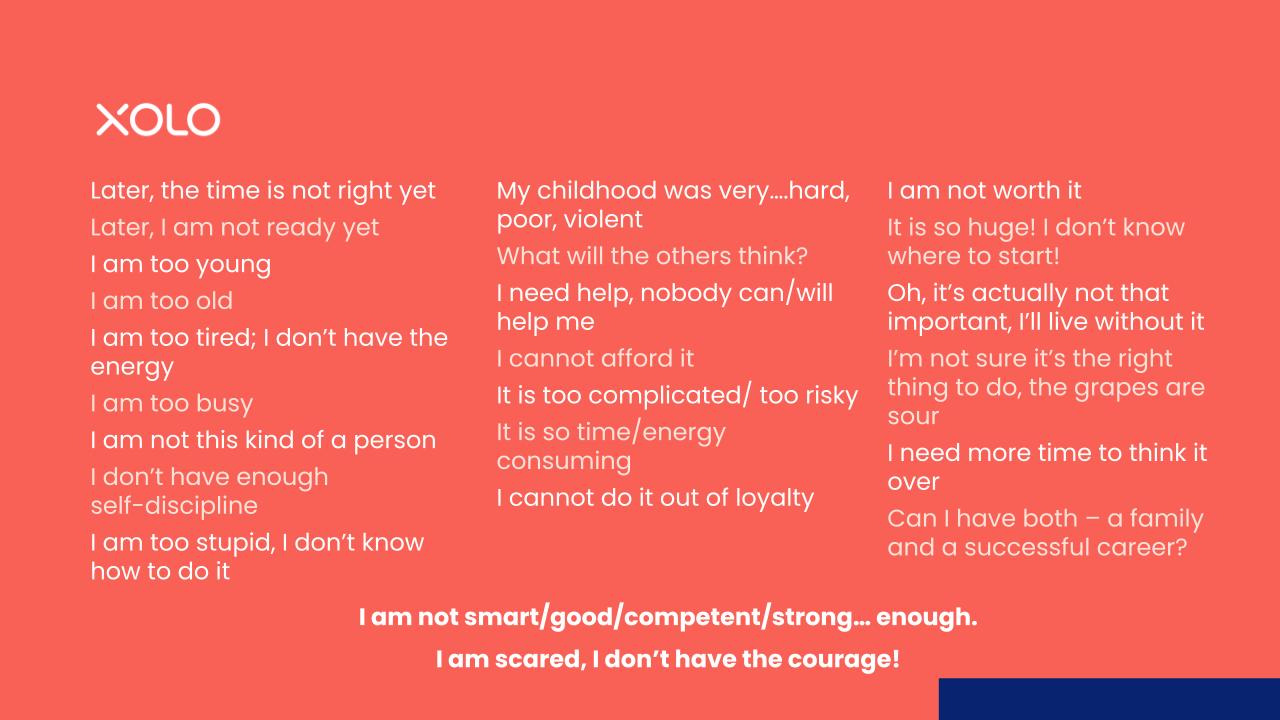9 Essential Insights From Our Imposter Syndrome Webinar
.jpg)
on March 25, 2021 • 4 minute read

Earlier this month, we conducted a survey of our female users and learned that 66% of women feel challenged by the prospect of starting their own business and/or freelancing. When respondents were asked to go into more detail regarding which aspects they felt were holding them back they listed:
- Pay gap, financial security
- Fear of failure
- Perceived lack of experience
- Time consumed by household responsibilities
Fear of failure and the perceived lack of experience are both major symptoms of the common phenomenon known as Imposter Syndrome.
We thought it would be helpful to dive into this important topic as a community so we can learn more about what imposter syndrome is, how the symptoms manifest, and how to effectively heal from its debilitating effects. For this webinar we were joined by a popular therapist, author, and lecturer Katrin Saali Saul, who is a practicing family therapist and author of the book The Art of Being a Woman, an exploration of female archetypes within our society.
You can view the entire webinar here, but in the meantime, here are 9 important takeaways:
#1: It's not the excuses, it's lack of courage that's holding you back

Take a look at this long list of excuses. Maybe you can even point to a few favourites that you're using even now to justify why you haven't made progress moving toward a goal.
It's human nature to refer to this long list of excuses to justify inaction, but when we look deeper beneath the surface, we begin to understand that it's not these excuses that are holding us back, it's fear.
Fear takes many different different forms in our lives, but when it actively obstructs our efforts to move forward toward our goals, it's because of our own lack of courage. Every time you say that you can't do something because you don't have the courage, you lose a little bit of confidence and sense of control in your life. By succumbing to fear and losing confidence in ourselves, we're ultimately eroding our own sense of power and agency to ultimately shape our existence.
#2: In order to become courageous, we need to become friends with failure
Courage doesn't mean you don't still have fear, it means that you learn to push past it and do it anyway! And if gaining courage can only be achieved by becoming comfortable with failure, how do we learn to be comfortable with failure? You guessed it — by practicing!
#3: Want to move forward? Ask yourself 4 questions
- What do I want to change?
- Why do I want to do it?
- What are my main obstacles?
- What am I afraid of?
"The meaning of life is to find your gift. The purpose of life is to give it away." - Pablo Picasso
#4: Make a plan (then stick to it)
Here is Katrin's prescribed process for moving forward:
.jpg?width=1280&name=Facing%20your%20fears%20as%20a%20female%20entrepreneur%20-%20A%20Xolopreneur%20Webinar%20(1).jpg)
#5: Scientists started studying imposter syndrome in the '80s
Imposter syndrome is the chronic feeling that others are overestimating your abilities, while you yourself know that you are a fraud. It's also marked by the signature expiration date on this perceived "fraud" — that it's only a matter of time until everyone realises what you've known all along: that you are completely incompetent.
#6: There are 5 "types" of imposters
Having imposter syndrome is hard enough, so imagine our surprise when we learned that there are 5 distinct "flavours" of imposter syndrome!
- The Perfectionist is never satisfied with anything less than perfection and is always convinced that their work can be better. If they score a 99% on a test, the perfectionist thinks, "Why not 100? Shame on me!"
- The Expert is never satisfied with their own level of understanding and even though they're highly skilled, they underrate their own experience. Even a minor lack of knowledge sends them reeling into a shame spiral.
- The Soloist believes that it's a sign of weakness to rely on other people. And since you can't rely on other people, you must be perfect on your own.
- The Natural Genius believes that everything should come naturally to them. They set excessively loft goals, and then feel immense shame when they don't succeed on their first try.
- The Superhero seems to be a direct result of our social media obsessed society. This type of imposter syndrome believes that you have to be perfect in absolutely every single aspect of your life: in business, as a parent, in relationships, in friendships, etc. Every aspect of your existence must be instagram-filter level of perfection and the inability to live up to this completely impossible standard comes with… you guessed it… deep shame and self-loathing.
#7: Men suffer from imposter syndrome, too
When scientists first began studying imposter syndrome in the '80s, they believed that it was a phenomenon that almost exclusively affected high-achieving women. But modern research has proved that this debilitating feeling of being a fraud affects both genders. One might even argue that suffering from imposter syndrome is especially difficult for men, since males have traditionally been taught by our society that they must repress all uncomfortable emotions and suffer in silence.
#8: Comparing ourselves to others is a deadly sin
Especially because we usually compare ourselves at our worst, to others when they're at their best.
#9: To begin to heal, we must learn to accept ourselves as we are
People who suffer from imposter syndrome make for some of the kindest, most compassionate partners, friends, and co-workers. The sad irony is that they are so often unable to lend this same compassion — which they show almost universally to those around them —to themselves. To begin to heal from this constant state of shame and self-loathing, it is important to begin to treat yourself with the same kindness and compassion that you show to everyone else in your life.
The next step is to adjust your self-limited thinking; don't think of it as lowering the bar. Instead, think of it as simply adjusting your standards to a level where you won't be left constantly feeling inadequate. It's about coming to terms with the fact that you will never be perfect, you will never be the best, and that doesn't matter because you're still good enough.
A huge thank you to Katrin Saali Saul for sharing her time and wisdom with us for this very special and insightful talk. For more great insights and tricks for overcoming imposter syndrome (which we unfortunately weren't able to fit into this blog post) watch the full playback of the webinar here!
